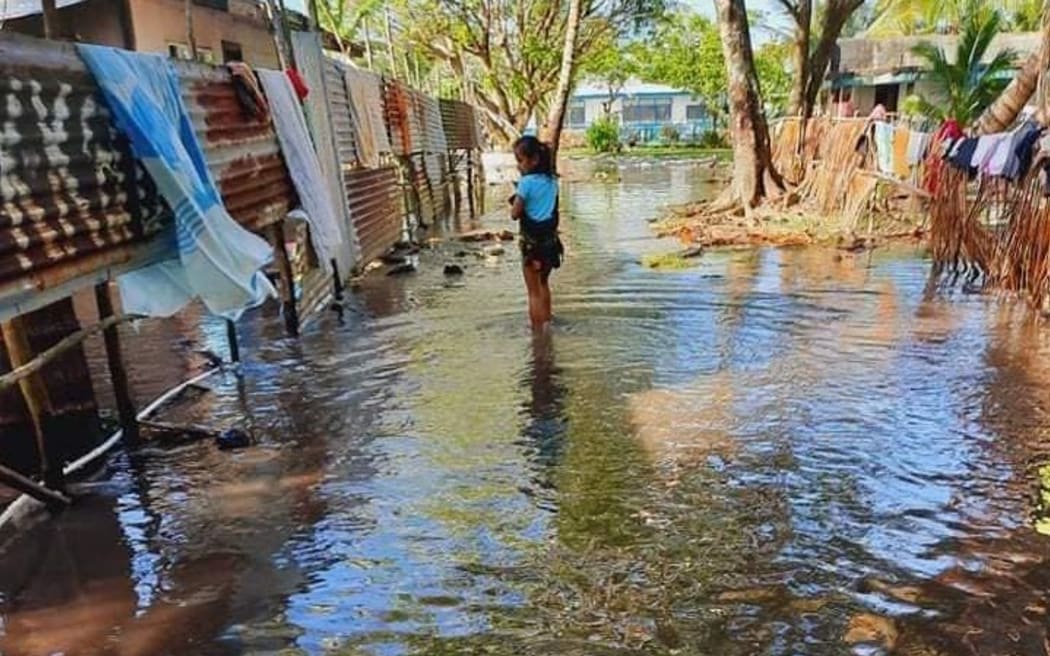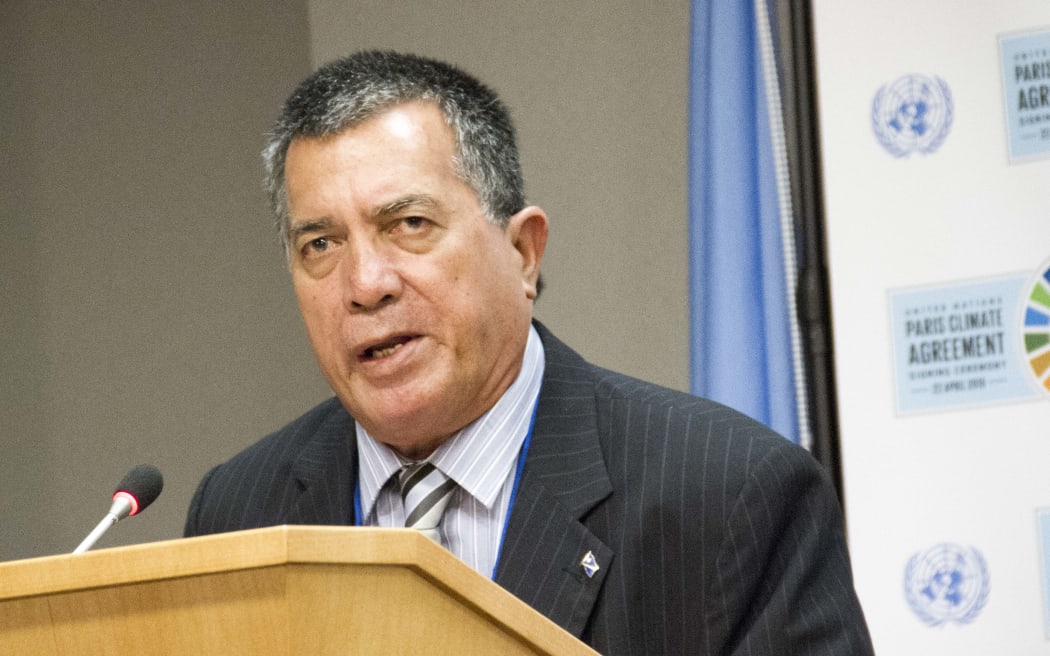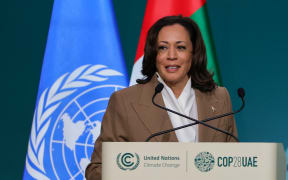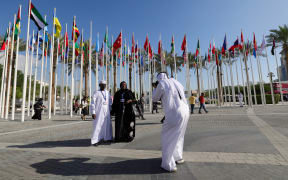
The second day of high tide flooding in the Marshall Islands hit low-sections of Majuro Atoll Sunday afternoon, flooding properties but causing little damage. Photo: Giff Johnson
Marshall Islands will not accept an outcome from COP28 that does not put the world back on track for a 1.5 degrees Celsius world.
Speaking at the resumed high-level segment of the 28th Conference of the Parties (COP) to the UN Framework Convention on Climate Change (COP28), Natural Resources and Commerce Minister John Silk told the global community that the people of the Marshall Islands will not go silently to their "watery graves".
For Marshall Islands families, climate change threatens their very existence. At its highest point, the low-lying atoll stands at only two metres above sea level making sea level rise a very real threat experienced by her people.
A one meter sea level rise will mean 40 percent of the buildings in its capital city, Majuro, would be permanently inundated and flooded, and entire islands will disappear.
"Island states like my own have been coming to COP for years to try to convince others that our future in our homes matters," Silk said.
"Despite our best efforts, we are far, far off track. We cannot pretend otherwise.
"With current policies, the planet is on track to a 2.9 [degrees Celcius] future. We cannot adapt to a temperature rise that high; the loss and damage will be incalculable. It will be our death sentence."
"We will not go silently to our watery graves," he said, adding "we cannot and will not accept an outcome from this COP that does not set us on a course for a future that stays within the 1.5 degrees Celsius temperature limit".
Silk said there have been calls for a pragmatic outcome from COP.
"There is no more pragmatic response to the climate crisis than phasing out fossil fuels and investing in a resilient and just world."
Last week, the Marshall Islands launched its first National Adaptation Plan (NAP) at the Moana Blue Pacific Pavilion at COP28.
The plan sets out pathways for the country to adapt and preserve the self-determination that is their birthright.

John Silk (file image) Photo: UN/Fred Fath
Reduce emissions
The Marshall Islands plans to implement nature-based solutions, and strengthen infrastructure, education, and healthcare systems to make its people more resilient.
"But we have had to face the reality that the pathways that we have ahead of us also bring loss," Silkl said.
"In our NAP, we say that by 2040 we will need to be deciding which atolls can no longer be protected. 'Planned relocation' means tearing people from their ancestral islands that they depend on, that their culture is based on; that holds the bones of their forefathers, and legends passed on through generations."
"We are in this position because we have been led by self-interest and short-term profits for too long. We have imagined that we could act on climate change slowly; we imagined that the most cautious thing to do was to take our time."
The Marshall Islands has called on every country, led by the major greenhouse gas (GHG) emitters, to reflect their commitments towards phasing out fossil fuels in their Nationally Determined Commitments, and for a clear follow-up process to make sure all commitments to reduce GHG emissions are real and not just another unmet promise.
'Protect the most vulnerable'
While the Pacific Islands region contributes less than 0.003 percent to global emissions, it is amongst the most vulnerable to the impacts of climate change.
Despite this, the Pacific Islands, including the Marshall Islands are demonstrating climate leadership with the Marshall Islands spearheading the call for a GHG levy in maritime shipping as the island nation has sought solutions to reduce emissions and generate funds for the world's vulnerable.
"The most prudent decision now is drastic, urgent action to quickly phase out fossil fuels," he said.
"If we further the myth that we can continue to exploit fossil fuel resources with no end in sight, this COP will not be credible. We need to phase out fossil fuels. In the words of the Secretary-General: "Not reduce. Not abate. Phase out."
"This will not be easy.
"If you protect the most vulnerable, you protect the world. We are here in Dubai to fight for our island homes and for our people's right to determine our nation's future. We ask you all to stand with us."
- SPREP





